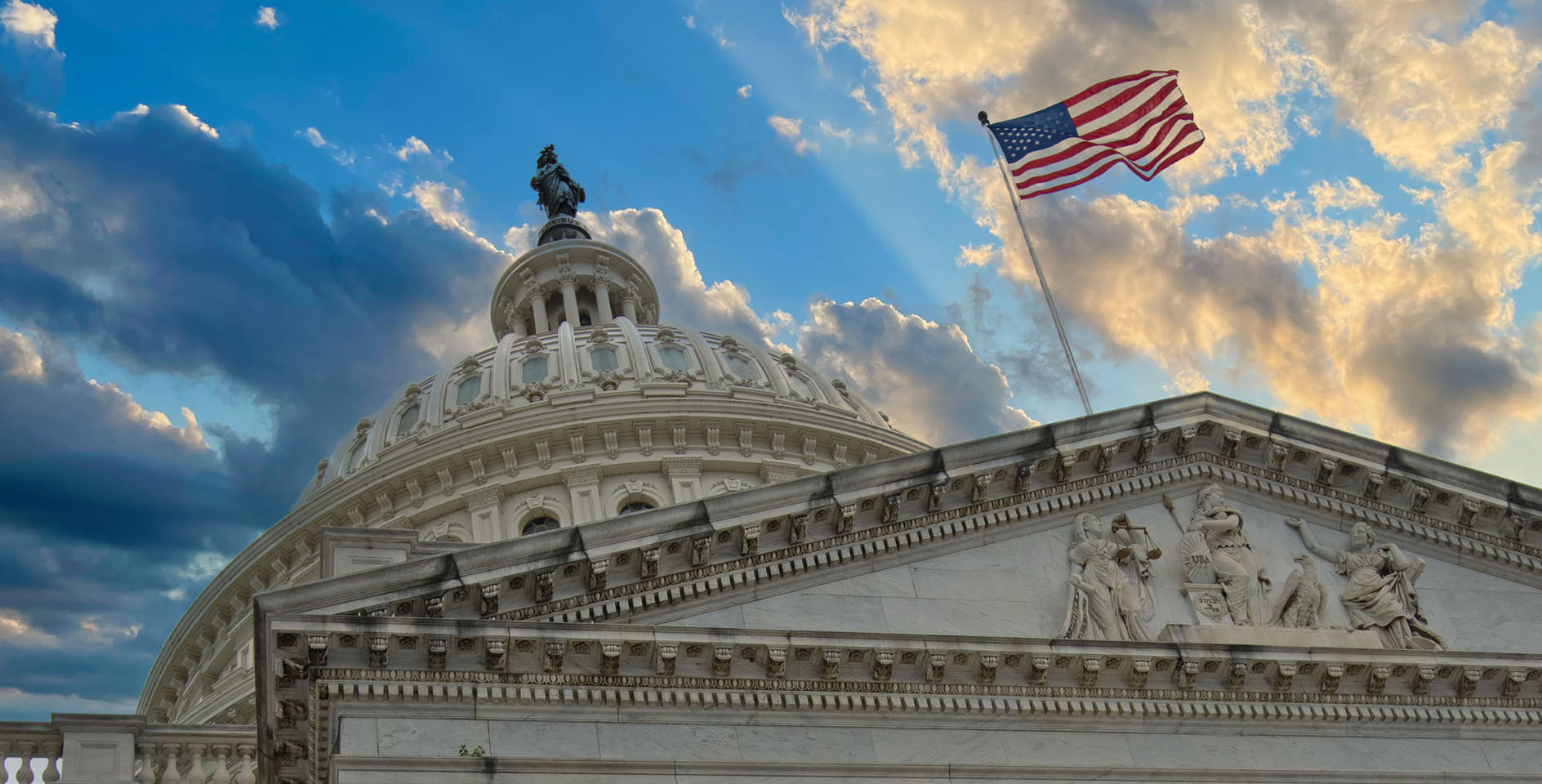“I don’t think the average Christian is nearly political enough.”
For Christians paying any attention to political developments in the United States, these words may seem ill-conceived at best, or just plain crazy. Just think, in 21st-century America, the term “evangelical” has been so co-opted by politics that it describes a demographic increasingly viewed as a voting bloc more than a religious community. We might better wonder if we’ve gotten too political. But for Patrick Schreiner, associate professor of New Testament and Biblical Theology at Midwestern Baptist Theological Seminary and author of the new book Political Gospel: Public Witness in a Politically Crazy World, these words aren’t crazy at all, nor are they ill-conceived. They’re tethered to the main argument of his book, that “Christianity is political“—a reality, it seems, we’ve come to collectively overlook.
Rather than viewing Christianity and politics as two wholly different spheres that sour when mixed, Schreiner argues that “[Christianity] and politics are . . . completely and wholly overlapping.” And because they’re so intertwined, Christian discipleship would do well to “not separate what God has joined together,” so to speak (Matt. 19:6). But, lest we misunderstand Schreiner’s aim, Political Gospel “is not an argument for one party over another,” nor is it “a manual for policies,” nor even “an argument for a third way;” instead the book “offers a framework” that leaves readers “recognizing Christianity is quite political, but maybe not in the way [they] think.”
Christianity is political
“It has become a truism,” Schreiner writes, “to state that Jesus didn’t come with a political message. As the common trope goes, though Israel expected a warrior-king to come riding on a white horse to overthrow Rome, he came with a spiritual message about their hearts. Jesus simply wants a relationship with you.”
Have you ever heard someone make this statement? Have you ever made it yourself?
“The problem is,” he continues, “this is a half-truth. Jesus made a political announcement. He declared himself to be King. We have one ruler to whom we are loyal . . . he is the King of kings.” With this, Schreiner drives the stake of his argument firmly into the ground—”Christianity is political.” In fact, he argues that “the whole biblical storyline,” and “all the vocabulary of salvation,” even, “can be put under the banner of politics.” He goes on: “The substance of Christian hope at its foundation is political. Thus, Jesus was not merely urging a revolution in personal values. He was not aloof to political concerns; it was the very purpose of his coming.”
Politics defined
Over the years, our working definition of politics has become skewed and is now assumed to mean something more akin to partisanship. And partisanship, “the wheeling and dealing along party lines” or the “endorsement of candidates by pastors” is not what Schreiner argues for. He’s also not advocating for “the merging of church and state.” Instead, he means “politics in terms of public life, the ordering of society, enacting justice, and the arranging of common goods.” And because “God is sovereign over the whole world,” not just “the inner reaches of the human heart,” the gospel has significant political implications.
Politics in its proper place
But Schreiner is “not merely suggesting Christianity has political implications.” He argues that “Christianity is itself a politic. It is an all-encompassing vision of the world and human life…meant to be enacted in the church, showcased to our neighbors, and spread to the world.” If that’s the case, then Schreiner is right: Christians should indeed be more political. But to what degree, and in what way?
In Political Gospel, the charge is for readers to put politics in its proper place, which requires that we “recover the true political nature of our message” and reassert our allegiance to the “King of kings,” letting his vision of the world and its proper ordering shape our public and private lives. And while we are called to be more political not less, the model of Christian political engagement put forth by the New Testament, as Schreiner argues, is surprisingly paradoxical.
The paradox
The way in which we understand Jesus’ message to be political and the way we apply and enact his message in our current political environment consists of a series of paradoxes, as it did for Jesus and the first-century church. We are to embody what Schreiner calls “the way of the kingdom” and “the way of the dove;” “the way of subversion” and “the way of submission;” “the way of the lion” and “the way of the lamb.” It is these tensions—these paradoxes—that are to mark our thinking and our ethic as “political disciples” of the King of kings.
Way of the kingdom, way of the dove
“When Jesus stepped onto the scene, his first words were fully political: ‘The time is fulfilled, and the kingdom of God is at hand; repent and believe in the gospel’ (Mark 1:15). Gospel. Kingdom. Believe. All of these are politically loaded terms.” With these words, Jesus announced that the kingdom of God was officially breaking into the Roman world of his day and, therefore, rivaling its political order. And he went further, calling people “to enter this new polis (city)” by transferring their allegiance, and enacting the kingdom’s dominance, for example, by disarming one of Rome’s “mascots” (the exorcism of legion, Mark 5:1–20). In his life, Jesus “proclaimed, presented, and performed a new public, social, and political reality”—he “was the bearer of a new political regime.” And he was crucified for it.
But, though “Jesus proclaimed the way of the kingdom he “enacted it as the way of the dove.” He was not “an anarchist, revolutionary, or social reformer.” And he didn’t bring the kingdom by way of “the sword.” Instead, the political ethics of Jesus were marked by persuasion, servanthood, mercy, peacemaking, meekness, love, and submission. They are what Schreiner calls “the ethics of the dove.”
Way of subversion, way of submission
In observing the life and ministry of Paul, we encounter the subversive nature of the gospel message—a message that “turned the world upside down” (Acts 17:6). As he traveled from city to city, Paul constantly had “political accusations” levied against him: he was accused of “subverting the Roman Empire,” “acting contrary to Caesar’s decrees,” and disturbing “the Pax Romana,” or peace of Rome. And why were these charges raised against him and his companions? Because Paul proclaimed the gospel of God’s in-breaking kingdom and established “political assemblies” (i.e., churches) all over the Roman Empire whose members pledged allegiance to a King not named Caesar.
But like Jesus, “Paul proclaimed the way of subversion [yet] did so in the way of submission.” Paul is accused of being “an agitator, a plague, a leader of a rebellion, and someone who desecrated the temple,” but maintains that he is innocent of these charges. Rather than leading rebellions, Paul subverts the Roman Empire while submitting to it.
Way of the lion, way of the lamb
In the book of Revelation, we read of Jesus as the King of kings, the one whose throne “stands above every earthly throne,” whose coming will mark the fall of every other empire. At his return, the “city of God” will finally supplant the “city of man” and “complete the redemption of the redeemed.” We will join him in the city whose “gates will never be shut” (Rev. 21:25). One day “The Lion will return and [conquer] all other kingdoms.”
But what are we to do in the meantime? Should we try to hurry the kingdom by taking up the way of power? To conquer the city of man by legislating our King’s victory now? Schreiner says no, “We are called to conquer. But the way we conquer shocks us.” The way of the lion must be “embodied in the way of a slain lamb.” We are to conquer by being in Christ, by bearing witness to Christ, and by waiting on Christ faithfully. “In many ways, we are to continue in normal everyday Christian responsibilities looking forward to Christ’s return.”
Our public political witness
In Political Gospel, the charge is not for readers to make politics ultimate but to put politics in its proper place. Too often the church has chosen one of two ways—either partisanizing or privatizing our “politic”—that either overlook or refuse to see the political nature of our message, both of which reveal and result in “malformed political discipleship.” On the side of partisanism, our political discipleship “comes from talking heads on cable news” instead of from “reflections on the implications of our faith for public life.” Here, our partisan loyalties are prized over loyalty to Christ. On the other hand, we can also privatize our faith, refusing to see “how the gospel should shape our public habits [and] stances.” Here, we become “politically quietistic or innocuous,” with nothing to offer a society in dire need of our “political gospel.” Both approaches reveal a misplaced politic and a counterproductive or ineffective public witness.
But how we “behave” politically—how we “respond to the government,” how we interact on social media, how we speak of our elected officials, how we think—”is part of [our] witness.” And, currently, our public witness is floundering. The time is ripe for us to bring “our political lives in conformity with Christ.”
“The gospel is political, but it is political in a way no one expects.” And followers of the way are political, but should engage in politics in a way no one expects. But, like every generation, we face a political choice. “Will we follow the cross in our political engagement or our own ideas? Will we let fear drive our decisions, or trust God? Will we submit to his way, or carve out our own paths?” In Political Gospel, Patrick Schreiner helps readers answer these questions, offering a new paradigm from which to think. True to his aim, readers will leave convinced not only that “Christianity is quite political” but that Christians themselves are not “nearly political enough.”











